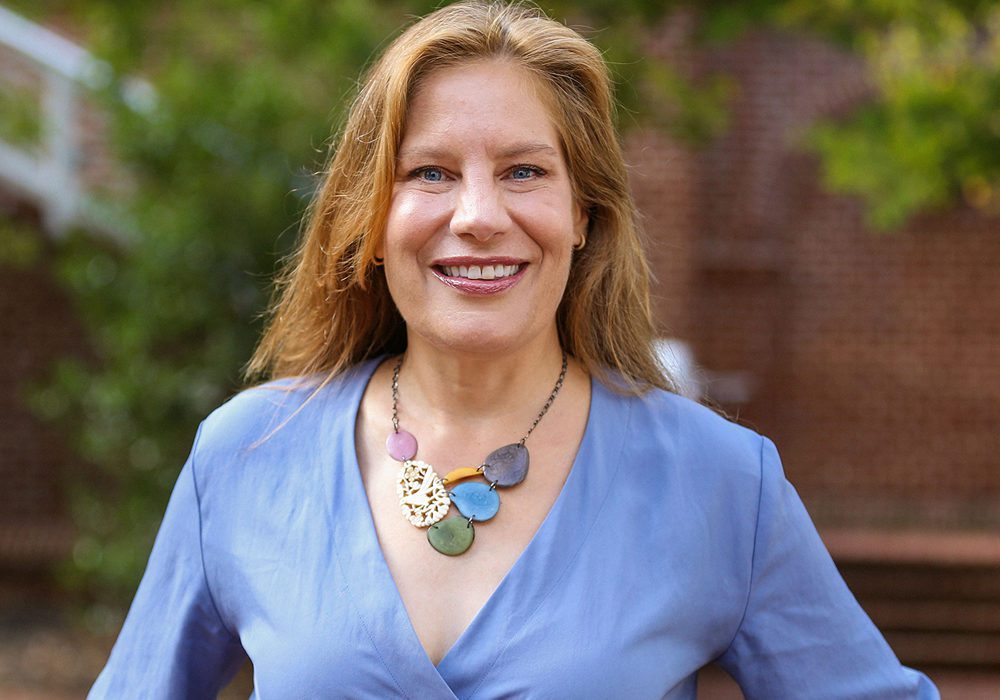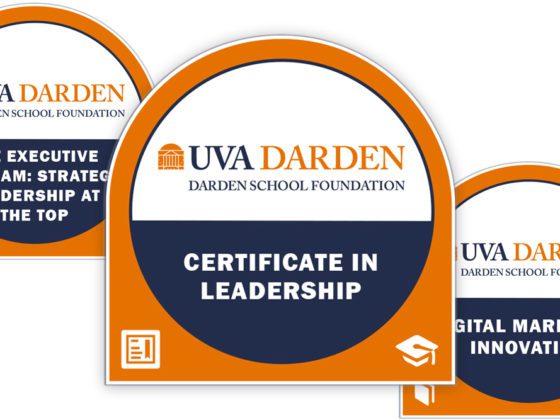Anne Trumbore leads Digital and Open Enrollment programs for the Sands Institute of Lifelong Learning and is responsible for expanding business education to new audiences of learners. She is passionate about creating equal access to education and lifelong learning so individuals can better their lives and further their careers. After working in the entertainment business for a number of years, Trumbore transitioned to the world of higher education. As an early-stage employee at Coursera, NovoEd, and Stanford’s Online High School, Anne helped pioneer new forms of student-centered online education. Her work has resulted in a number of publications on online pedagogy and history, the future of higher education, and the future of work. Prior to arriving at Darden, Anne established and led Wharton Online, a strategic, revenue-producing, digital learning initiative of The Wharton School, University of Pennsylvania. Learn more about her career path to Darden and why lifelong learning is so important to her.
What drew you to work in higher education?
My paternal grandparents didn’t go to high school – they went to work. My dad joined the Air Force six weeks after his 17th birthday and graduated from a local college 10 years later. Education was important in my family, but they didn’t know how to access it.
When I landed what was supposed to be a temporary job at Stanford University, working for a professor who was a pioneer of computer assisted instruction, I discovered that “giftedness” or high aptitude is present at the same rate across gender, race and class, but when you look at the demographic makeup of our top universities, all genders, classes and races are not proportionally represented. This is a crude proxy for inequality in our educational system, and it really hit home for me that this system which has been so transformative for me and my family, is rigged. Additionally, due to changes in student loan policies, employment qualifications, and the increasing competitiveness of school and work, the problem is becoming worse and not better. I do see technology as a democratizing tool for education, one that can help us correct course to provide access to quality educational experiences.
Why do you believe in lifelong learning?
I lived it! I became a single mother fairly suddenly when my son was eight years old. I was teaching English at Stanford’s Online High School, and I needed to jumpstart my career by gaining some tech skills. It may not be advisable to join a startup, even one headed by two of the preeminent artificial intelligence researchers in the world, as a way to acquire tech skills: it was a trial by fire and tears, but I managed to learn enough code to get by and to work with engineers. I was so fortunate to be able to help start and create some of the first massive open online courses (MOOCs), thinking through the designs for peer review and the user interface technology for learners. I did the same thing at NovoEd, and then I realized it was time to move to the university side. I realized from partnering with many institutions that change had to come from within.
Why did you choose to come work at Darden?
I became fascinated by the idea of universities as banks of social capital, and how they grant it. The universities I’ve worked for are primarily knowledge production institutions and instruction is secondary. My job is to thoughtfully use technology to provide greater access to that knowledge and to enable better teaching. However, there’s a problem there because great universities have built their reputations on restricting access to knowledge!
What we’ve seen is that folks are starting to lose faith in higher education, which I completely understand. As a business, we are selling people on this idea that more education equals a better life, and then we restrict access to it, either by admissions policies, high tuition or both. To me, it is a fascinating problem to solve correctly – how do we provide access to lifelong learning and opportunities for growth, while still maintaining our ability to grant social capital and be a top research institution that can change lives.
That’s what attracted me to Darden. First, UVA is a public institution. Second, Darden is the number one business school for teaching, and so you have learner-centric faculty and culture. Third, Dean Scott Beardsley is forward thinking, non-traditional and highly effective. Finally, we have the benefit of the tremendous generosity of the Sands family to create an institute for lifelong learning that can do good, do it well and be a model for other institutions. Ultimately, we have a mandate and a mission to add the resources to move forward and create something vitally important for society.




